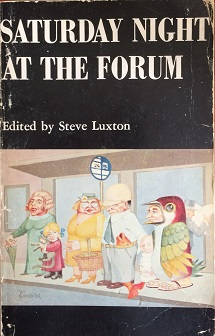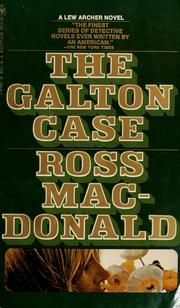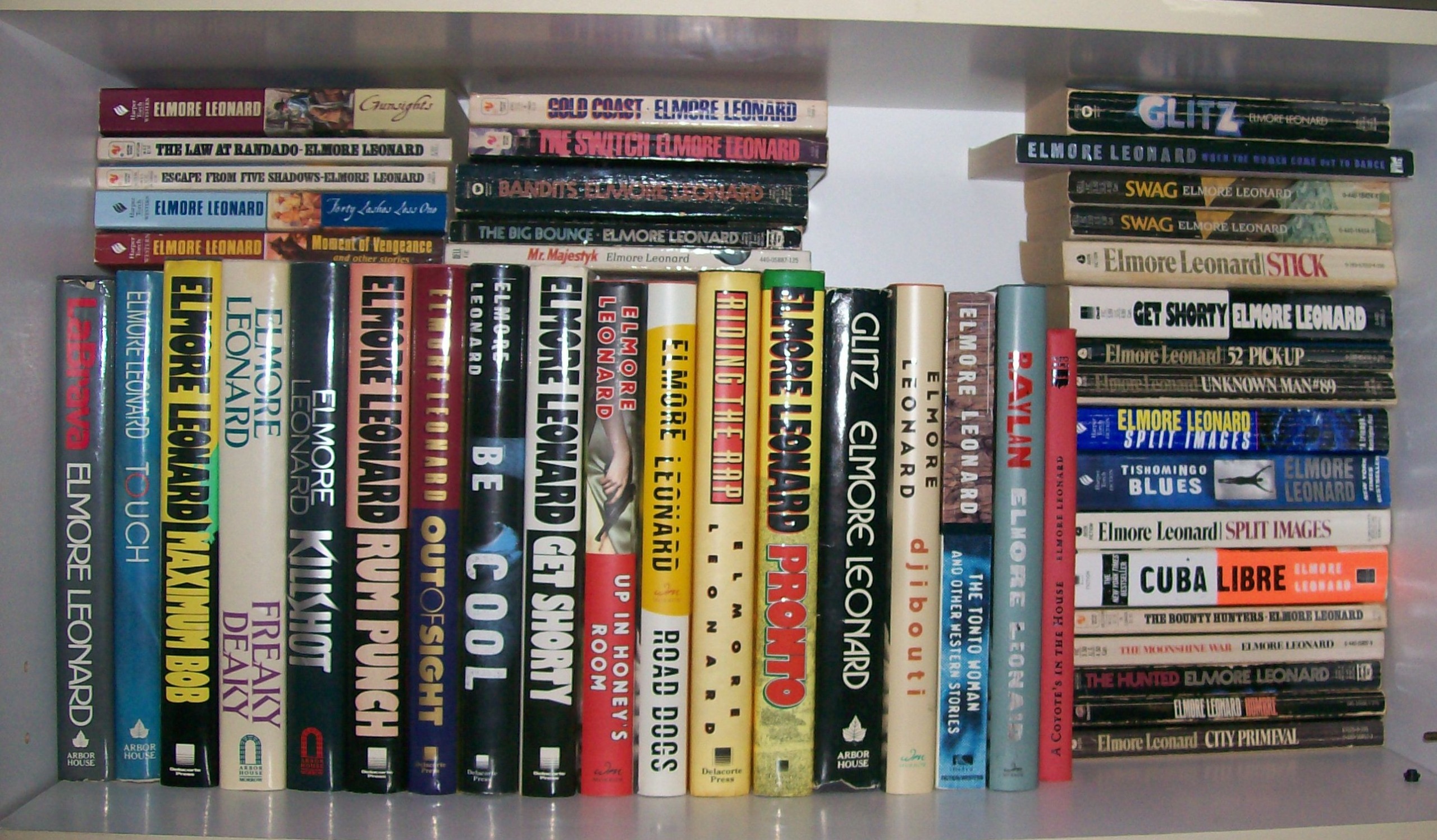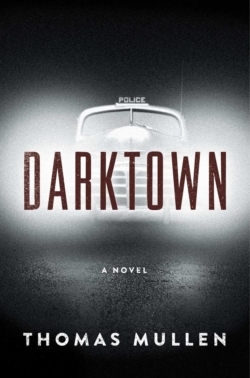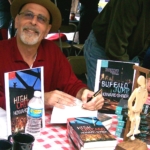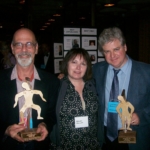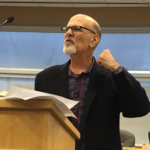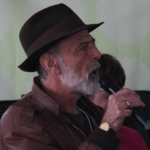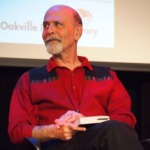![]() Years ago, Elmore Leonard, one of the all-time originals in crime fiction, published his ten rules of writing in the New York Times. They were both fun and instructive, the best of all being the last (“Try to leave out the part that readers tend to skip.”) The abridged versions follow; the full versions were published in an illustrated chapbook.
Years ago, Elmore Leonard, one of the all-time originals in crime fiction, published his ten rules of writing in the New York Times. They were both fun and instructive, the best of all being the last (“Try to leave out the part that readers tend to skip.”) The abridged versions follow; the full versions were published in an illustrated chapbook.
- Never open a book with weather.
- Avoid prologues.
- Never use a verb other than “said” to carry dialogue.
- Never use an adverb to modify the verb “said”, he admonished gravely.
- Keep your exclamation points under control. You are allowed no more than two or three per 100,000 words of prose.
- Never use the words “suddenly” or “all hell broke loose.”
- Use regional dialect, patois, sparingly.
- Avoid detailed descriptions of characters.
- Don’t go into great detail describing places and things.
- Try to leave out the part that readers tend to skip.
My most important rule is one that sums up the 10. If it sounds like writing, I rewrite it.
Over the years, other authors have been asked to submit their rules of writing. I compiled a list for my writing course at University of Toronto that included Margaret Atwood, Roddy Doyle, Richard Ford, Neil Gaiman, David Hare, P.D. James, Dennis Lehane, Hilary Mantel, Joyce Carol Oates, Annie Proulx, Ian Rankin and many others. I asked students to read through them, see which resonated, and create their own ten rules for finishing their book. Some needed to carve out writing time and space. Others needed to impose greater discipline or conduct much-needed research. It was always an interesting exercise for them and for me.

Whether teaching in class or online, I emphasize the need for strong obstacles in the path of the hero (Rule 2).
Without putting myself in the class of Leonard or the other contributors, I humbly offer my own ten rules:
- Create complex characters with strong needs, and send them on a mission worth telling.
- Reveal character through actions taken to get around ever-increasing obstacles.
- Do enough research to be authoritative and plausible, but keep it to a minimum in the text.
- Read voraciously, especially but not exclusively in your genre.
- Once you know your story, tell it with a sense of urgency. Write like your hair is on fire.
- As Hemingway advised, end your writing day before you’re spent, so you know where to start tomorrow.
- Outlining, even in your head, can save you months of grief. And it can be every bit as creative as writing itself.
- Throw everything you’ve got at the first draft. You can always cut it later.
- Unplug your earbuds. Look up from your phone. Observe people. Eavesdrop. Watch how people walk and gauge their moods. Get under the skin of strangers.
- Do not, under any circumstances, make the mistake I did and quit your day job before your first book comes out.
- Bonus: Once you finish your draft, get people to read it. Takes their comments graciously, even if you don’t agree with them. Sleep on them. See if they make sense in the morning. For me, revisions are where the best writing happens. Cut what’s not needed, tighten the springs that provide tension, sharpen dialogue. As much as you revise your completed text, polish your first few chapters to a fine point. Bring them to a note of suspense. Create a worthy sample of 5,000-10,000 words to show an agent or publisher if you get the chance.



